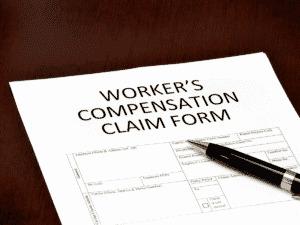What No Fault Workers Compensation Means For California Injured Employees [2022]
What No Fault Workers Compensation Means For California Injured Employees – Workers' compensation in California is provided to injured employees on a no-fault basis. This means that most injuries that happen at work are covered by no fault California workers compensation benefits. If your employer has workers' compensation insurance, then you cannot sue your employer for personal injury. You need to know what no fault workers compensation means for California injured employees.
In this blog article, readers will learn what no-fault means within the California workers’ comp. system. What you learn here is general information only and it is not legal advice. Only after discussing the specific facts and circumstances of your case with a lawyer can you receive legal advice. That's why you need to dial 866-NAPOLIN and request a valuable, free legal consultation to find out if you have a case.
More Injuries Covered – Benefits Limited
Workers' compensation laws in California are designed to provide an important safety net for those who are hurt at work. The legal framework allocates the risk of job accidents and occupational disease only to the employer, regardless of negligence on his or her part. In exchange for taking on this risk, the employer is immune from being sued in civil court by employees for a negligent non-intentional falsehood.
Employers are less likely to face expensive and occasionally deadly employee litigation as a result of this sort of agreement. If an employee gets hurt due to employer negligence, the employee cannot sue their employer for negligent personal injury. If the employer has valid workers' compensation insurance, then they are immune from personal injury lawsuit.
What Damages Are Excluded For Employees Injured at Work
All injured employees (with exceptions – see below) are entitled to a medical benefit and money compensation from the system. In exchange, employees give up their right to sue for negligence and obtain certain categories of damages. Employees are limited to the benefits of workers' compensation, which does not include:
- Pain and Suffering (excluded)
- Emotional Distress (excluded)
- Loss of Consortium (excluded)
- Lost wages (limited to temporary disability benefits)
- Lost future earnings (limited to permanent disability benefits)
What Types of Benefits Are Available Under Workers' Compensation
Injured employees can collect quite a bit of compensation even though benefits are limited by category and amount. Sometimes injured workers' can collect much more under workers' compensation than in a lawsuit against a private party where insurance is limited. Workers' compensation provides the following benefits:
- Temporary Disability Payments (to replace lost wages)
- Permanent Disability Payments (to replace lost future earnings)
- Medical Treatment (to cure or relieve the injury)
- Travel Expenses (to and from the doctor)
- Job Retraining (if you cannot go back to your old duties)
- Penalties & Sanctions (if your employer doesn't do the right thing)
Check out California Workers' Compensation Benefits Explained for a deeper dive. Don't delay on filing a claim because there are time limits on applying for workers' compensation benefits.
Do All Injuries that Happen at Work Qualify for Benefits?
A policy that covers no-fault means that an accident is covered even if no one is to blame for it. Even if the employer had no responsibility for the accident, it may still be required to pay workers' compensation. The rules regarding who is eligible to receive valuable workers' compensation benefits are outlined in California law. The definition used in the California Labor Code is “arising out of and in the course of employment.”
Injury Arising Out Of And In The Course Of Employment (AOE/COE)
The basic idea is that an injury, regardless of cause (how it happens), must happen as a result of one's work in order to qualify for workers' compensation. If it doesn't, it's not eligible for benefits.
Simple right? Not so fast. The question of whether an injury arises out of and in the course of employment is obviously one of fact where a lot of disputes crop up. With the exception of psychiatric injury, any damage found to be 1% or more attributable to job duties is considered work-related and must be compensated.
Common Exceptions You Need to Know About
Even where an accident happens at a job site or at the office, it is possible that the law will still find it non-work related (or not AOE/COE). Some examples include where:
- Intoxication of claimant caused claimant’s own injury;
- Horseplay/skylarking of applicant created the circumstances leading to self-harm;
- The Employee gets hurt at work while engaged in mutual combat where the applicant was the initial physical aggressor; and
- Other affirmative defenses may apply. Where the case is reported to the employer after notice of termination or layoff. And, no medical records or report to employer were created prior to the notice.
In addition to the argument that an injury happened off the job, the above are common factual questions pertaining to AOE/COE that exist in denied cases.
How Disputes Between Employer and Employee Are Resolved
Many legitimate injuries are denied by the employer and their insurance carrier. Many claims that are accepted receive ill-attention from the adjuster and never get paid out. If there is a dispute, then the injured worker will seek relief at the Workers' Compensation Appeals Board (WCAB). The injured worker has the burden to show by a preponderance of the evidence that they are entitled to the benefits.
Providing the DWC-1 Claim form to the employer has special significance because it starts the claims process which places legal duties on the employer and their insurance company. The injured worker starts the court process by filing what is known as an Application for Adjudication of Claim (Application) at the WCAB. The Application should not be confused with the DWC-1 Claim form.
Recap: The Claim Form is what you turn into your employer when you get hurt at work. The Application is what you file with the court when you have a dispute over a claim.
Hiring the Best Workers' Compensation Lawyers
These cases can be very complicated. No matter what, if you were hurt at work, you should always seek the help of an experienced workers' compensation attorney to make sure that your claim is filed correctly and that you get all of the benefits that you are entitled to under the law.
The biggest mistake that injured workers make is not hiring a lawyer and going it alone. The law is complicated, the insurance companies have their own lawyers, and if you don't know what you're doing, you will likely get taken advantage of.
A good workers' compensation lawyer will level the playing field and make sure that you get the benefits that you deserve.
If you or a loved one has been injured at work, contact the experienced workers' compensation lawyers at Napolin Accident Injury Lawyer today. We offer free consultations, and we will fight to get you the benefits that you deserve. Call us today at 866-NAPOLIN or fill out our online form to schedule a consultation.
- Safely and Legally Navigating Parking Lots in California - July 15, 2024
- Navigating the Aftermath of a Highway Auto Accident in California - July 15, 2024
- An Overview of California's Commercial Truck Insurance Laws - July 15, 2024



